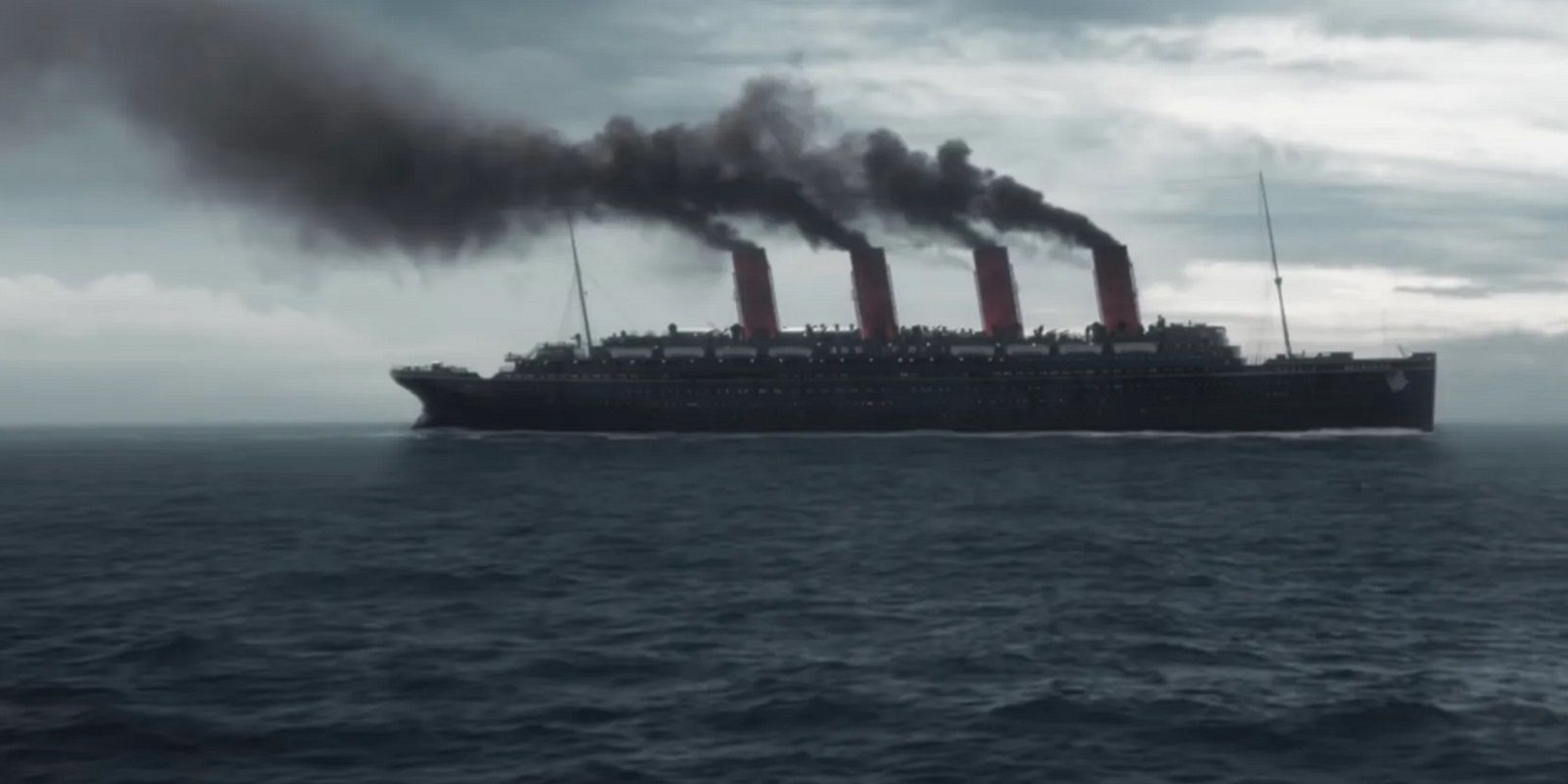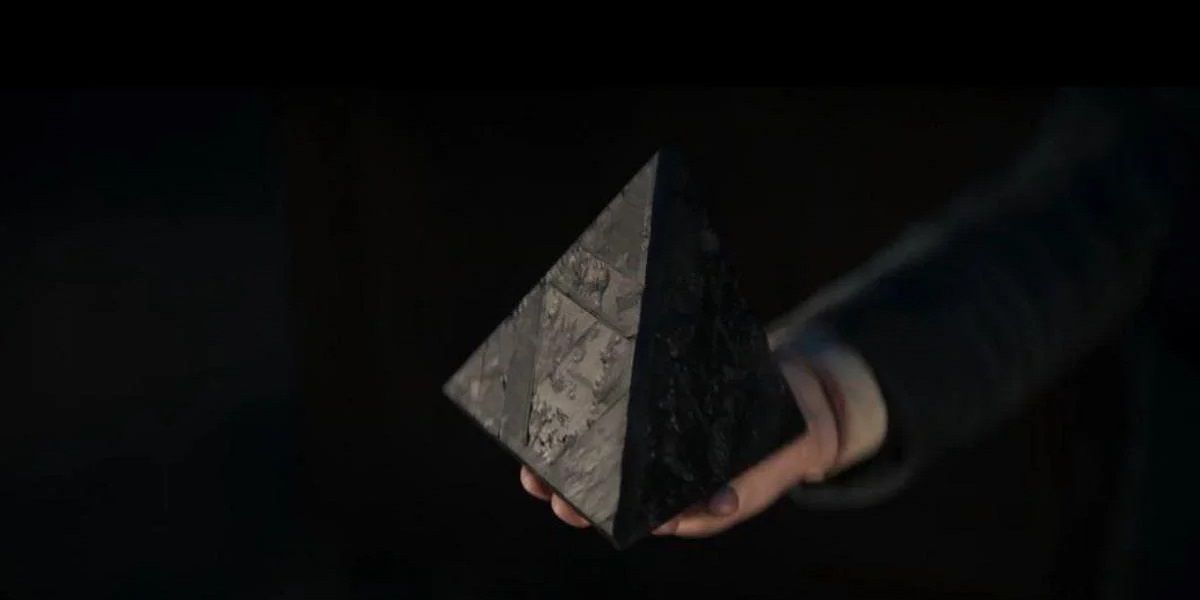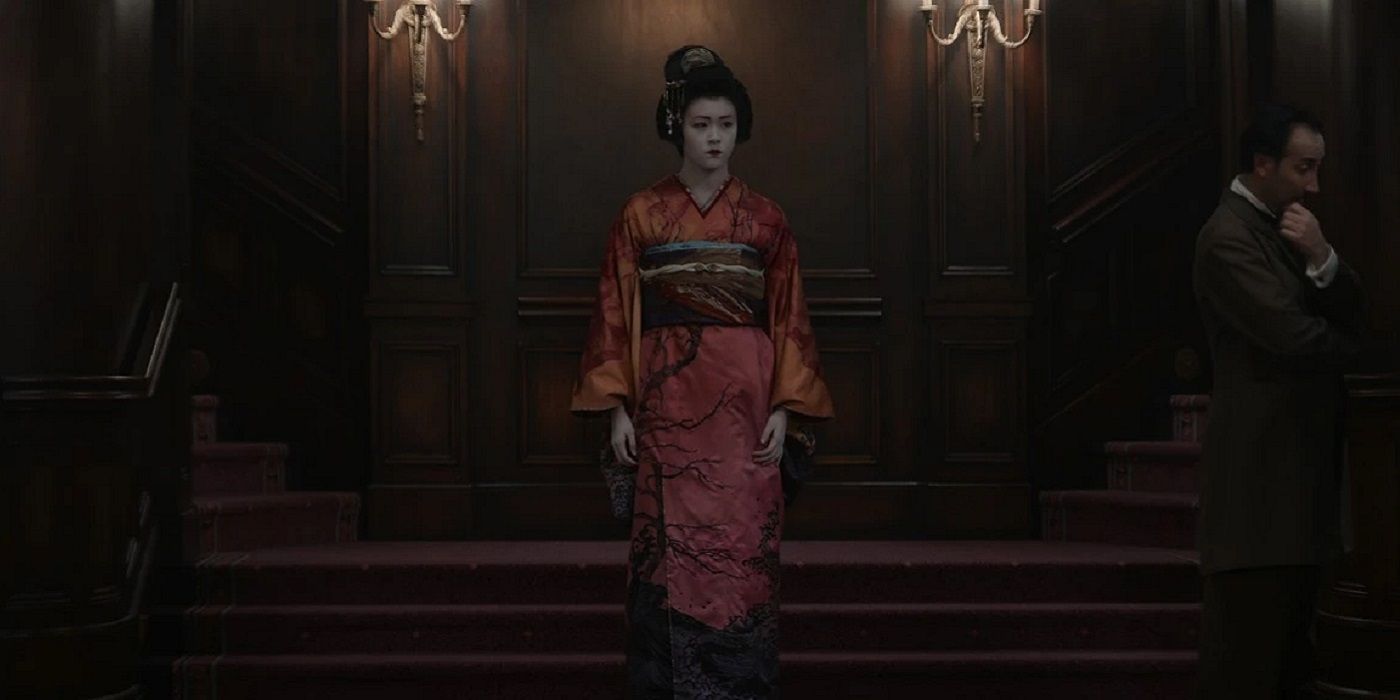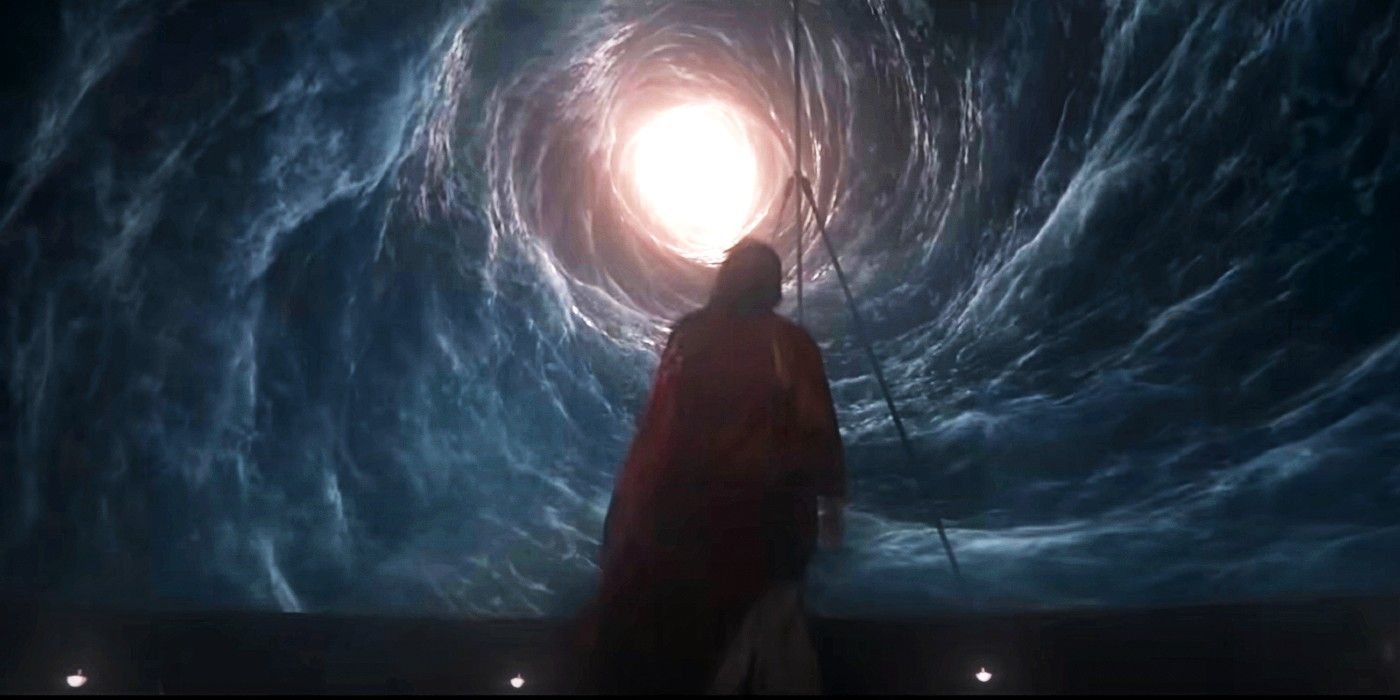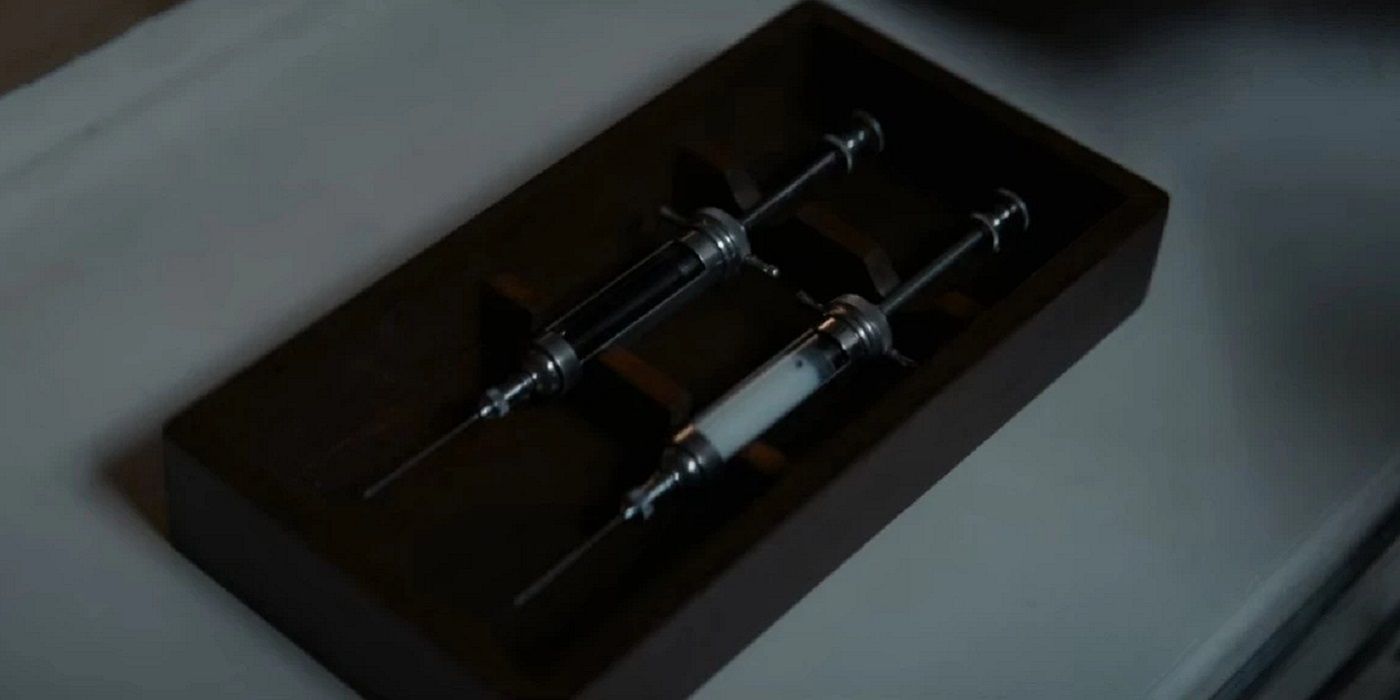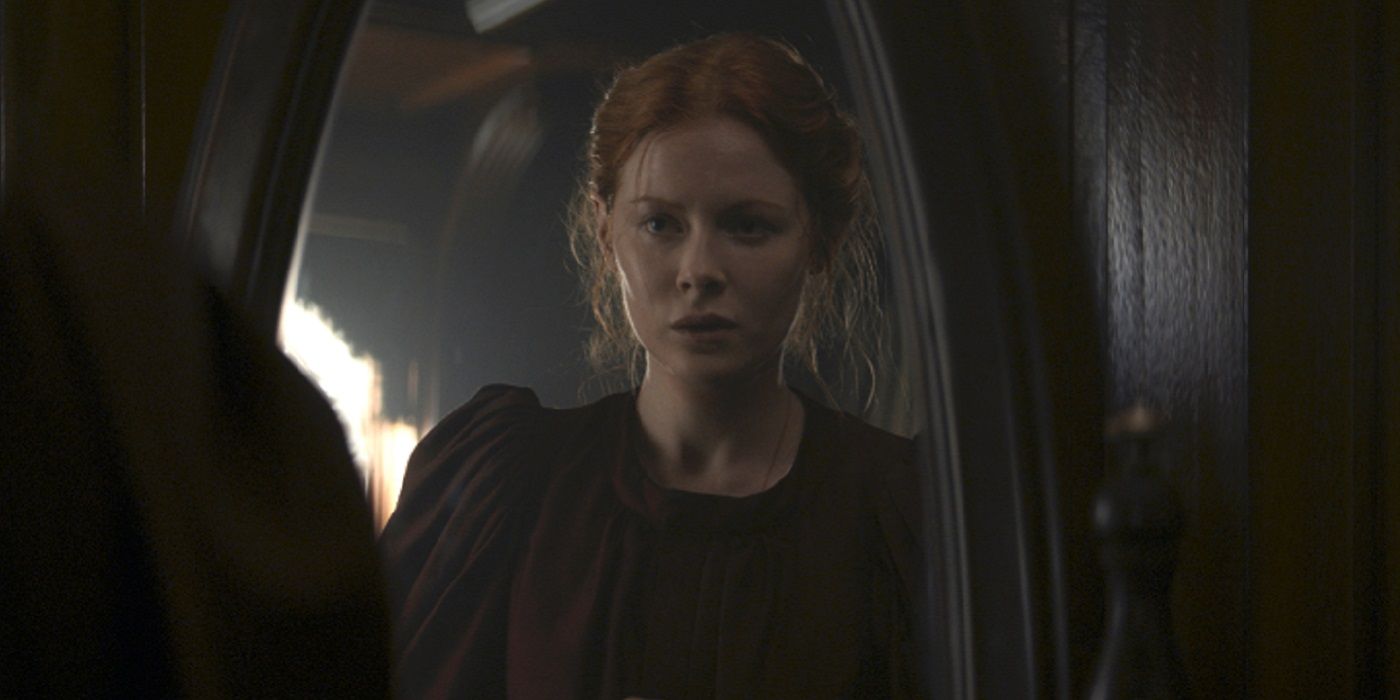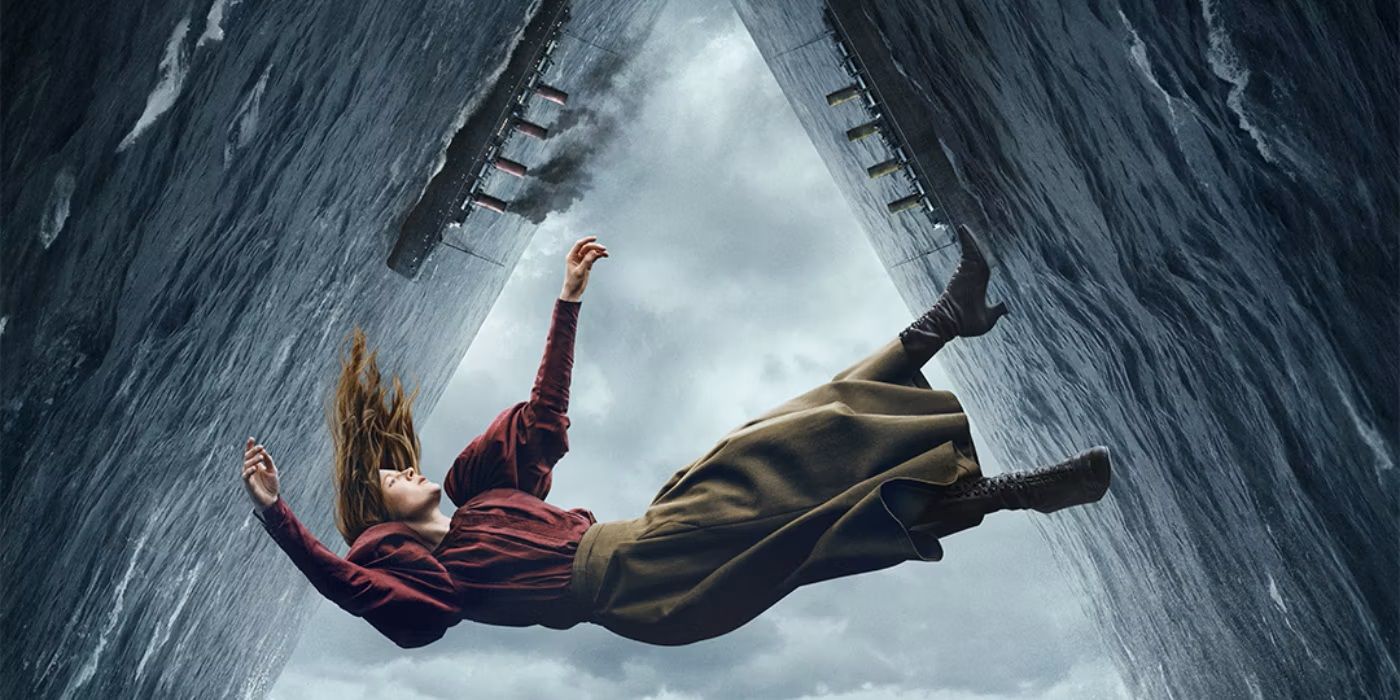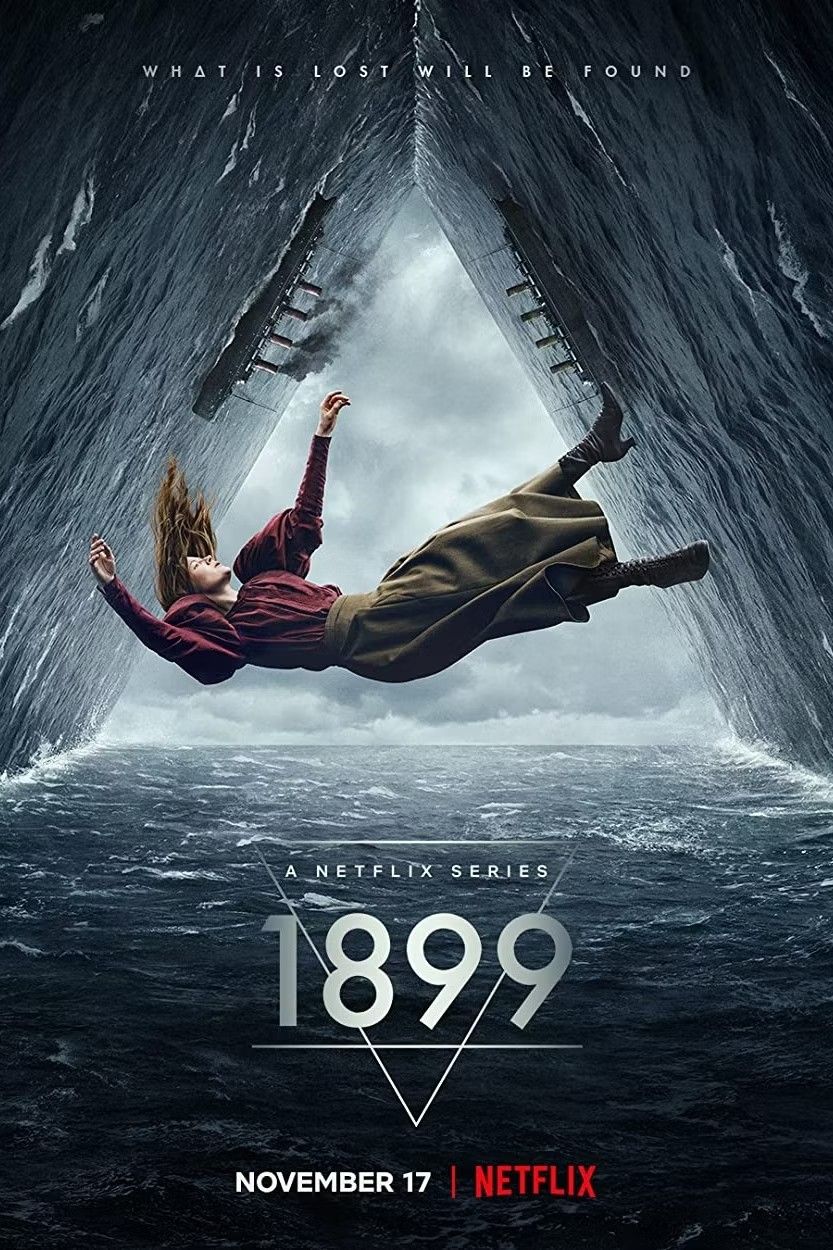Summary
- "1899 delivered a mind-bending show with intriguing cliffhangers and complex characters."
- "The ship Kerberos serves as a simulation, while Prometheus represents endless loops of trauma."
- "Maura's father is a red herring, as she is the true creator of the simulation."
With Netflix's 1899 ending after only one season, the cliffhanger twists and turns of its eight episodes demand a bit of explanation. Throughout its run,1899 explained a multitude of sci-fi concepts and narrative devices without offering a clear explanation for any of them. To add another layer of intrigue and drama, 1899 ended each episode with a puzzling cliffhanger while gradually unfolding the traumatic backstories of its primary characters. 1899 had the best of both of its genres and delivered one of the most mind-bending shows in recent memory.
While the Netflix original series took its time to unravel its underlying mysteries and intentionally kept viewers white-knuckled with its slow pace, it proved rewarding when it unveiled the core that held its baffling plot points together. 1899 also boasted impressive set design, diverse characters, and myriad relatable themes dealing with sexuality, death, religious fanaticism, and class divides. Netflix decided to cancel 1899 despite its success. With so much going on in its eight-episode run, the 1899 ending served up even more questions than it did answers.
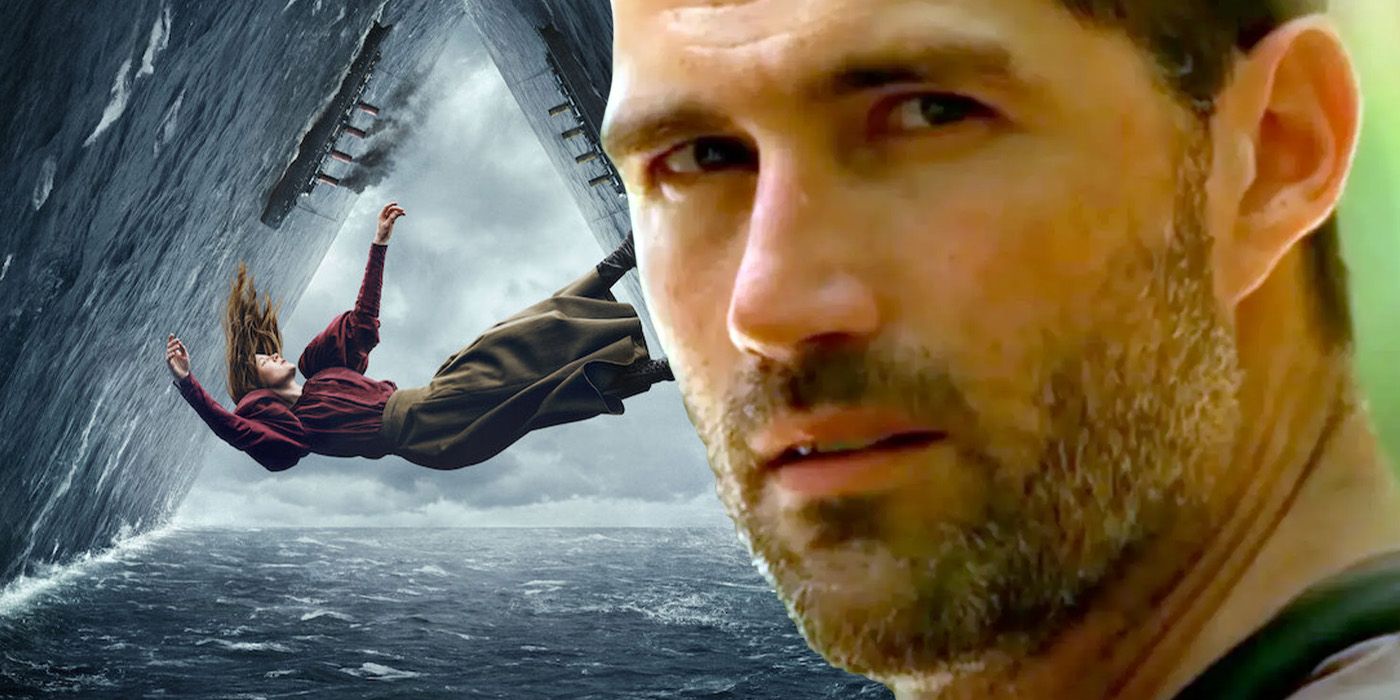
1899 Cancelation Proves No Show Can Be The New Lost
Since Lost ended in 2010, many TV shows have tried to recreate the mystery and huge success of the ABC series, though this now seems impossible.The Kerberos And The Prometheus In 1899 Explained
Kerberos Is Not An everyday Ship
A ship named Kerberos is the primary setting for 1899's roster of diverse characters, while Prometheus is another ship that had reportedly gone missing before Kerberos set sail. Early in 1899, it becomes evident that Kerberos is no ordinary ship and accommodates many technologies that are almost incomprehensible to the passengers. 1899 takes a dark turn when Kerberos' crew receives a message from a nearby ship, which, upon discovery, turns out to be Prometheus.
After finding only a young boy, Elliot, on the ghost ship, Prometheus' crew takes him onboard and sets sail back home. Little do they realize that another passenger from Prometheus named Daniel has boarded the ship.
Chaos ensues on the Kerberos when passengers start dropping dead, while Daniel attempts to force Maura (Emily Beecham) into questioning her sense of perception. 1899 explained these mysterious events in its last few episodes by revealing that the ship is a simulation that has been manipulating the passengers' reality. Everything from their memories to their physical appearance is a construct of the simulation.
From a mythological standpoint, Cerberus/Kerberos is the three-headed guard dog who prevents the dead from escaping the underworld. Given how 1899's Kerberos serves as a prison of perception and reality for the passengers, the name makes sense. Similarly, the other ship's name comes from the Greek myth of Prometheus, who was punished with eternal torment for stealing fire from Mt. Olympus and parallels the passengers living in endless loops of their simulated traumas.
Who Created The Simulation In 1899?
There Is A Red Herring Surrounding This
Red herrings in early episodes of 1899 explained initially that Maura’s father, Henry Singleton (Anton Lesser), is the evil genius behind the simulation. For instance, Maura keeps claiming that her father removed her memories after she and her brother learned about his secret experiments on the ship. In another scene, Henry spies on the passengers of Kerberos from the comfort of his room. While these moments are convincing enough to suggest that Henry is the simulation's architect, the 1899 ending reveals that Maura is its creator.
Outside the simulation, Maura once lived with her husband Daniel (Aneurin Barnard), and son Elliot (Fflyn Edwards). When Elliot's health started declining due to a mysterious disease, she could not deal with the pain and grief. In an attempt to "preserve" her son, she transferred his consciousness to a simulated reality where she and Daniel could spend time together. 1899 explained little of how the simulation grew from a child's playroom to a multi-layered system, or how Henry was part of it. However, it seems likely that many other forces got involved with the technology and escalated it into chaos.
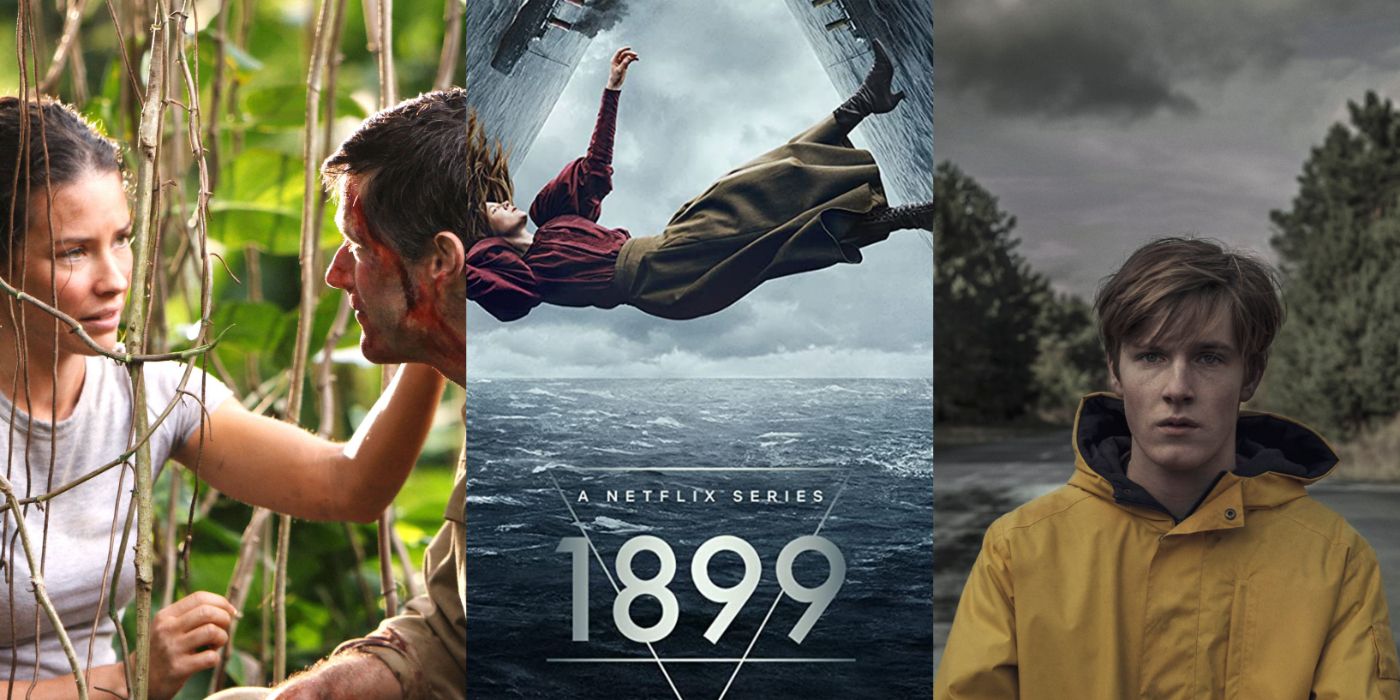
10 Best Mystery Shows To Watch Like Netflix's 1899
Netflix's new mystery show 1899 is a gripping descent into the confines of time and space, similar to shows such as Lost and The OAWorking this to his advantage, Henry misused his daughter's technology by creating more simulations inside his primary simulation to study the dark depths of the human brain. Maura explains his downward spiral in a brief conversation with Eyk (Andreas Pietschmann) by recalling that her mother had Alzheimer’s, which gradually destroyed her ability to recognize family members. After her death, Henry started coping with his loss by meticulously studying the human mind, hoping to find answers about his wife's illness.
With time, he took this too far by making his daughter and her family victims of his experiments. The fact that Maura purposefully chose to erase her memories to deal with the traumatic death of her son proves to be both a boon and a bane for Henry. While it allows him to manipulate her technology and use it for his benefit, he finds himself in trouble when he realizes that only Maura possesses the code to escape the simulations.
What The Pyramid, The Beetle, And The Key Mean In 1899's Simulation
Some Are Codes For The Simulation
The boy's pyramid and Maura's key are the codes required to end the simulations, as 1899 explained in later episodes. Since Maura had no memories of her past life, she could not recall anything about the key. Henry puts her through those recurring simulations to help her recall where she kept it. It is also possible Henry placed those pyramid symbols all over the ship to jog her memory, or Maura put them there to remember the key after losing her memory. The latter seems plausible since the pyramid and key symbol are tattooed behind her son's ear.
1899 explained details symbolically which demanded deeper reflection. Just like the pyramid and the key, the beetle is also a code that unlocks closed doors. The beetle's significance harkens back to one of Maura's memories from the real world. In the memory, Maura asks Elliot to free a beetle he traps in a jar to teach him the proverbial "set them free if you love them." Owing to this, the beetle probably gets manifested or designed as a code for literal freedom from locked doors in the simulation.
Are The Trapdoor Simulations Real Reflections Of The Past?
It Hasn't Been Confirmed Yet But There Are Theories
As 1899 explained, there is a trapdoor under every passenger's bed. Each trapdoor opens to an underground chamber leading to a simulation of the respective passenger's disturbing past. Considering how every character's past was likely a mere construct, the trapdoor simulations probably have nothing to do with the passengers' reality. This is further confirmed when the passengers start going through each other's memory simulations after Daniel alters the code.
Virus In 1899 Explained
It Comes From A Hack
Massive black structures start growing out of the ship's walls towards the 1899 ending, and when Virginia Wilson (Rosalie Craig) touches one, the black mass starts spreading all over her body. Like everything else in the simulation, the black substance is also a code that represents a virus. Daniel intentionally hacks into the system and introduces the virus to the simulation to prevent Henry from restarting the loop. This explains why he asks other passengers to avoid touching it.
What Plato's Cave Allegory Means In 1899
The Concept Has Been Used by Some Major Movies
In his allegory, titled "The Cave," Plato describes a hypothetical scenario where a group of people is chained inside a cave, and all they can see is a blank wall in front of them. The wall reflects shadows from the real world behind them but never gives them an accurate depiction of reality. Despite the limitations in their perception, the cave people accept the reality they are presented with because it is the only reality they know.
Movies like the Christopher Nolan sci-fi film Interstellar, Martin Scorsese's Shutter Island, and even Wachowskis' The Matrix made references to the same allegory. Henry recalls that Maura used to obsess over Plato's allegory when she was younger. That is probably where she found inspiration for creating alternative realities — or, rather, shadows of reality — through simulations.
However, after she lost her memories and Henry took control of her simulations, he became the bearer of reality while her simulation became a mere shadow on the wall. Since Henry, too, is part of a simulation, Plato's allegory is an endless cycle in 1899 where the leader of the simulation chain remains unknown.
How Henry's Black And White Syringes Work
They Each Serve A Specific, Important Purpose
Like all objects in the simulations, both injections are codes that serve a specific purpose. Their function is similar to the blue and red pills in The Matrix in that they alter the perception of those taking them. Henry uses the black injection to reset Maura's memories and send her into a new simulation. In contrast, he uses the white one to restore his memories and subsequent understanding of reality. 1899 explained little about the syringes explicitly, but their uses were shown in the events of the series.
Why Cirian Took Control Of Maura’s Simulation
No Official Reason Has Been Given
Towards the 1899 ending, Henry gets his hands on the pyramid and the key, but Daniel still manages to stay one step ahead. Daniel manipulates the syringe's code in such a way that when Henry injects its black serum into Maura, she reaches the first simulation playroom that she had created for her son. This is where Daniel tells her that he also changed the key's code to Laura's ring and the pyramid's code to a toy in Elliot's playroom. Using the new key and pyramid, Maura finally breaks out of the simulation loop in the show's closing arc.
However, considering how Daniel warns her that her brother Cirian has taken over the simulations, her journey seems to be far from over. Cirian's identity and motivations remain unknown even after the 1899 ending. It is clear, though, that at the end of 1899, he is at the top of the simulation chain and is perhaps the only one experiencing reality as it is; others are just perceiving the shadows of reality that he wants them to see.
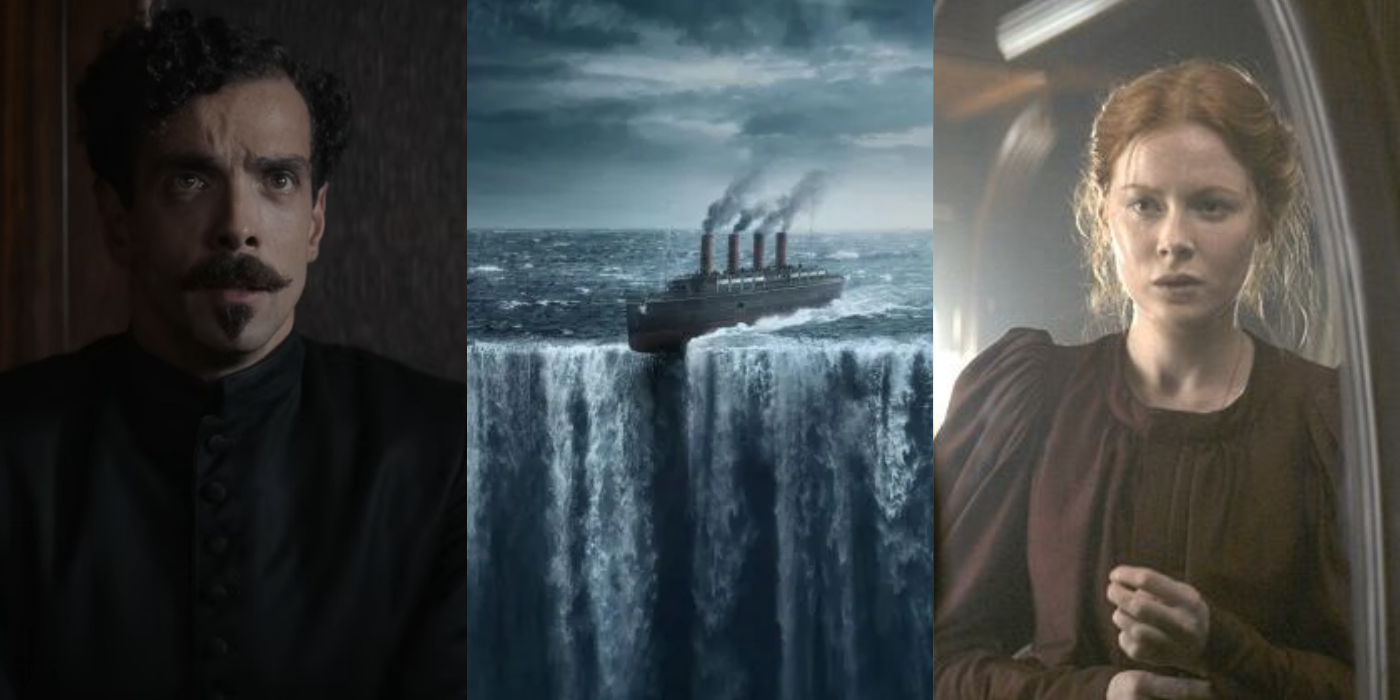
1899: 10 Wild Theories That Could Be True
1899's first season answered questions but also opened up many more. These are the wildest theories about what's to come.Has Maura Escaped The Simulation In 1899 Ending?
Most Of The Ending Is Speculation
The 1899 ending sees Maura wake up in a space station where she finds the other passengers plugged into a machine. This confirms that no one died on that ship. She finds a screen that reveals the name of the space station as "Project Prometheus" and the present year as "2099." This is followed by a "Welcome to Reality" message from Cirian, which confirms that he knows about his sister's escape from the simulation.
Since 1899 ends after this, whether Maura has escaped all simulations or was simply trapped in another is pure speculation. However, since the space station shares its name with the ship, it is possibly another simulated reality created by Cirian. Another detail confirming this is the phrase “may your coffee kick in before reality does” that Cirian leaves for Maura in the space station. In a previous scene, Anker and Ramiro find the same phrase written all over a book in the ship's control room.
Although 1899 never explained the phrase's significance, it seems to be Cirian's way of poking fun at his prisoners. By alluding to the false sense of wakefulness that comes when the brain is flooded with dopamine after the consumption of coffee, Cirian seems to insult Maura and others who willingly chose to live in fake simulations just to deal with the burdens of their realities. Since he greets her with the same message in the space station, he may be about to put her and the passengers through another puzzling simulation.

.jpg)
